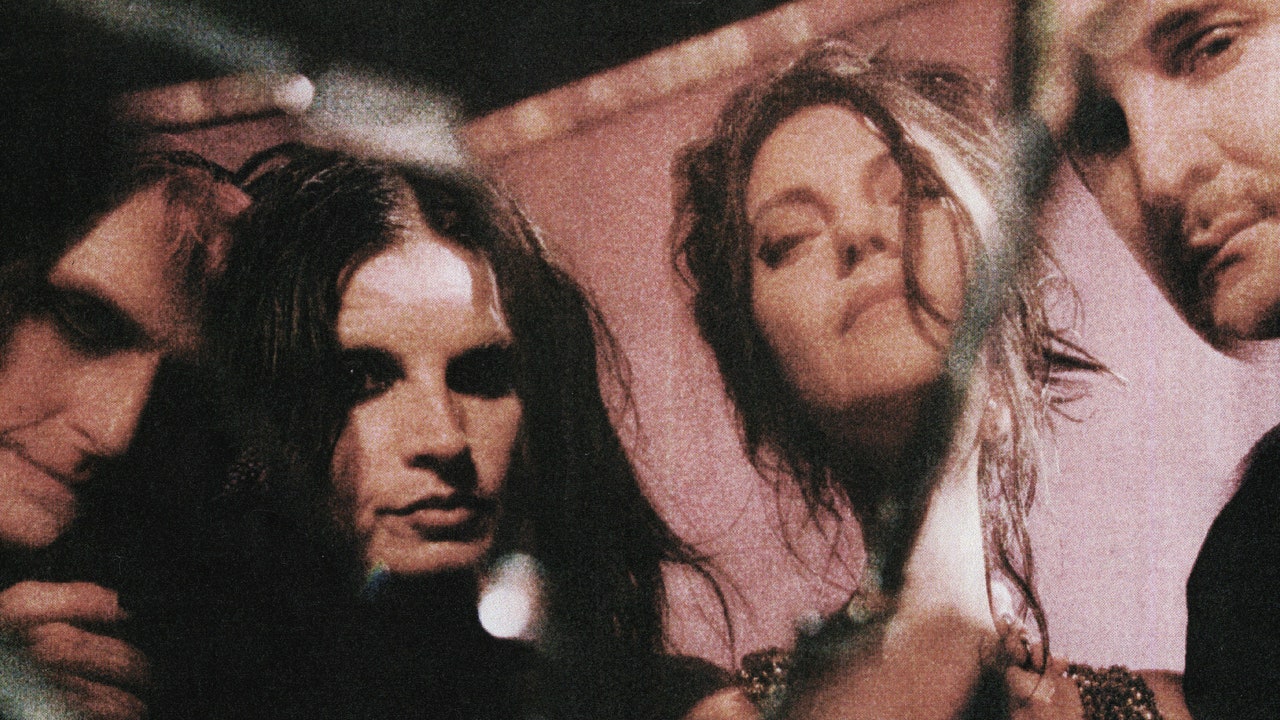A few months ago, André 3000 succinctly explained the creative philosophy that has animated his unlikely pivot to ambient-jazz flautist. “Sometimes, mastering shit can get boring,” the former OutKast member told Rolling Stone. “I’d rather go amateur interesting than master boring.”
I kept thinking of André’s eccentric credo while listening to this exhilarating debut (well… sort of) from Sharon Van Etten & The Attachment Theory. While Van Etten hasn’t transformed into a flute-toting vagabond (yet), she has spent the latter half of her career moving away from anything resembling a comfort zone. After taking her smoke-damaged indie-folk sound as far as it could go on her fourth album, 2014’s Are We There, the singer took a break from music and embraced being a novice again, making her acting debut on Netflix’s short-lived The OA and going back to school to study psychology. Eventually, she reemerged with 2019’s Remind Me Tomorrow, an extraordinary album wrought from atmospheric synths and curdled dread.
If 2022’s We’ve Been Going About This All Wrong felt like a slight retreat—a yearning for domestic comfort amid disasters both global (pandemic) and local (the wildfires depicted on the album cover)—its follow-up signals another new beginning. Or new band, rather, as this one’s billed not as a solo album but a record written in full collaboration with Van Etten’s bandmates, newly dubbed the Attachment Theory. Why form a band sixteen years into a celebrated solo career? Why not? During rehearsals for her 2022 tour, Van Etten grew tired of her own voice and impulsively asked her band to “just jam.” The experiment yielded two songs—the spiky post-punk workout “I Can’t Imagine (Why You Feel This Way)” and sludgy, disquieted “Southern Life (What It Must Be Like)”—and left the singer “feeling very inspired.”
It wasn’t a fluke. On Sharon Van Etten & The Attachment Theory, the frontwoman surrenders to the rhythm on a stormy, unsettled album centered on groove and mood. In lieu of verse-chorus structures, songs circle around mantra-like motifs, swirling and intensifying like tornado winds. “Who wants to live forever?” she wonders over and over on the stunning opener, flipping the aspirational immortality of Oasis’s same-named hit on its head as spectral synths from keyboardist Teeny Lieberson lead the way. Inspired by Van Etten’s friendship with a fan who died young from a chronic illness, “Afterlife” goes even bigger, reflecting the widescreen grandeur of Remind Me Tomorrow standout “Seventeen.” Grasping at all the big stuff—life, love, mortality—the song evokes the specter of a connection so strong it makes you want to believe in the fantasy of reunion after death: “Turned me inside out and now I find/I want to see you in the afterlife,” Van Etten croons.
